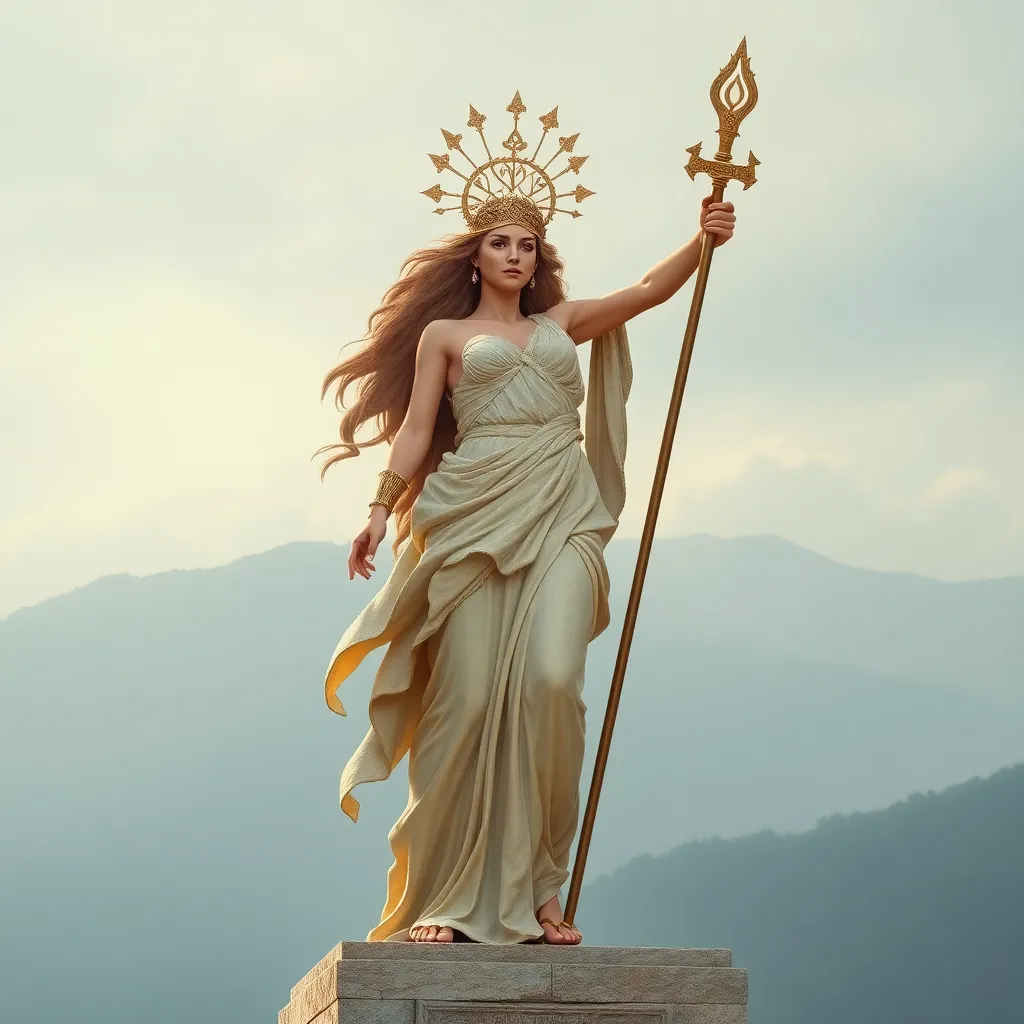The Festivals of Artemis: Celebrations of the Goddess
I. Introduction
Artemis, the Greek goddess of the hunt, wilderness, and childbirth, holds a significant place in ancient Greek mythology. As the daughter of Zeus and Leto, and the twin sister of Apollo, she embodies the spirit of independence and strength. Festivals dedicated to gods and goddesses were an integral aspect of ancient Greek culture, serving as a means for communities to connect with the divine and celebrate their beliefs.
These festivals not only honored deities but also reinforced social bonds and cultural identity among the participants. The festivals of Artemis were particularly noteworthy, encompassing various rituals, communal gatherings, and celebrations that honored her multifaceted nature.
II. Historical Context of Artemis
The worship of Artemis can be traced back to ancient times, with roots in both Minoan and Mycenaean cultures. Initially, she was revered as a goddess of fertility and the protector of young women. Over time, her attributes expanded to include the hunt and the natural world, reflecting the evolving relationship between humans and nature.
Key myths associated with Artemis include her birth on the island of Delos, where she helped her mother, Leto, give birth to her twin brother, Apollo. Another significant myth involves Actaeon, a hunter who stumbled upon Artemis while she was bathing. In response to this violation, she transformed him into a stag, leading to his demise at the hands of his hunting dogs.
III. Major Festivals Dedicated to Artemis
Several important festivals were held in honor of Artemis, each with unique characteristics and regional significance:
- The Brauronia: Celebrated in Brauron, this festival was primarily for young girls, who would dedicate themselves to Artemis. It involved various rites, including the ‘Arkteia,’ where girls would dress as bears in a symbolic act of devotion.
- The Artemis Agrotera: This festival, held in Athens, celebrated Artemis as the protector of the wilderness and the hunt. It included athletic competitions and sacrifices, emphasizing her role as a goddess of both hunting and agriculture.
- The Halieia: This festival took place in Delos and was dedicated to Artemis as a goddess of the sea. It involved offerings and rituals aimed at ensuring safe voyages and bountiful catches for fishermen.
IV. Rituals and Activities During the Festivals
The festivals of Artemis were vibrant events filled with various rituals and activities that fostered community spirit:
- Processions: Participants often engaged in processions to temples dedicated to Artemis, carrying offerings and singing hymns.
- Sacrifices: Animal sacrifices, particularly of deer and goats, were common acts of devotion to please the goddess.
- Games and Competitions: Athletic events were held, particularly during the Artemis Agrotera, showcasing physical prowess and honoring the goddess.
- Feasting: Communal meals followed the rituals, allowing participants to share in the blessings of Artemis and strengthen social ties.
These rituals not only honored Artemis but also reinforced the cultural practices and communal identities of the participants.
V. The Role of Women in Artemis’ Festivals
Women played a crucial role in the festivals dedicated to Artemis, reflecting her status as a protector of women and children. Female participation was not only encouraged but often central to the celebrations:
- Leadership Roles: Many rituals were led by women, particularly those associated with the Brauronia, where young girls were initiated into womanhood.
- The ‘Arkteia’ Rite: This rite involved young girls dressing as bears and performing dances, symbolizing their transition and dedication to Artemis. It emphasized the goddess’s protective nature over young women.
Through these activities, women found empowerment, celebrating their connection to the goddess and their roles within their communities.
VI. Artistic Representations and Cultural Impact
The festivals of Artemis have been depicted in various forms of ancient art and literature, highlighting their significance in Greek culture:
- Vases and Pottery: Many ancient vases feature scenes from the festivals, illustrating the rituals and activities associated with Artemis.
- Literature: Poets such as Homer and Ovid referenced Artemis in their works, showcasing her influence in Greek mythology and culture.
Furthermore, the themes of these festivals have inspired later artistic expressions and cultural interpretations, reflecting the enduring legacy of Artemis as a symbol of female strength and independence.
VII. Modern Interpretations and Celebrations
Today, the legacy of Artemis and her festivals continues to resonate in modern spirituality and cultural practices:
- Contemporary Festivals: Some communities hold modern-day celebrations that draw inspiration from ancient festivals, emphasizing nature, femininity, and community.
- Feminist Movements: Artemis has become a symbol in feminist movements, representing female empowerment, independence, and the reclamation of the feminine divine.
These modern interpretations reflect the ongoing relevance of Artemis in contemporary society, encouraging individuals to connect with their heritage and celebrate the strength of women.
VIII. Conclusion
Artemis’ festivals not only served as expressions of devotion to the goddess but also as vital cultural events that reinforced community bonds and social structures. Through rituals, celebrations, and artistic representations, her legacy endures, reminding us of the importance of honoring ancient traditions in today’s world.
In a time when the values of independence, strength, and connection to nature are more relevant than ever, celebrating the festivals of Artemis allows us to reflect on our roots and embrace the powerful feminine spirit that she embodies.




